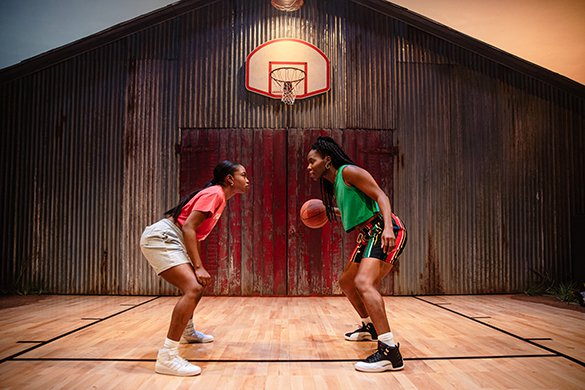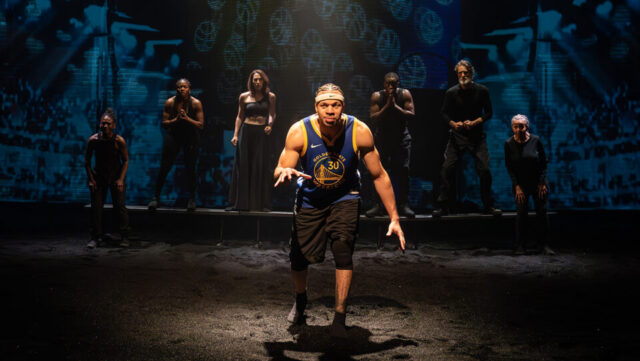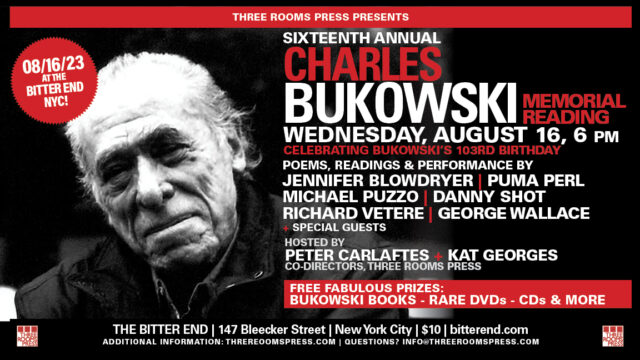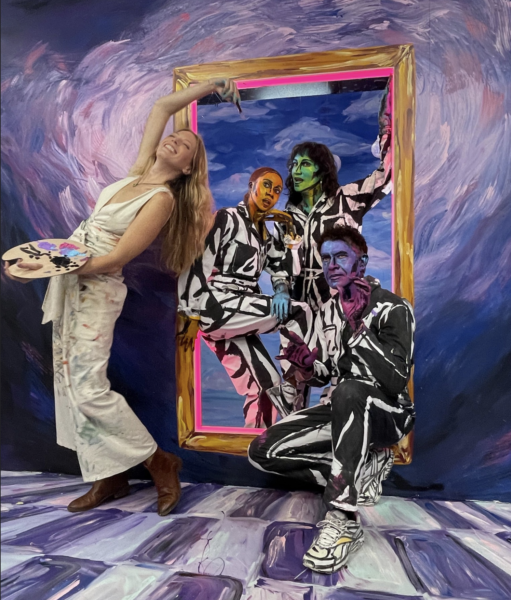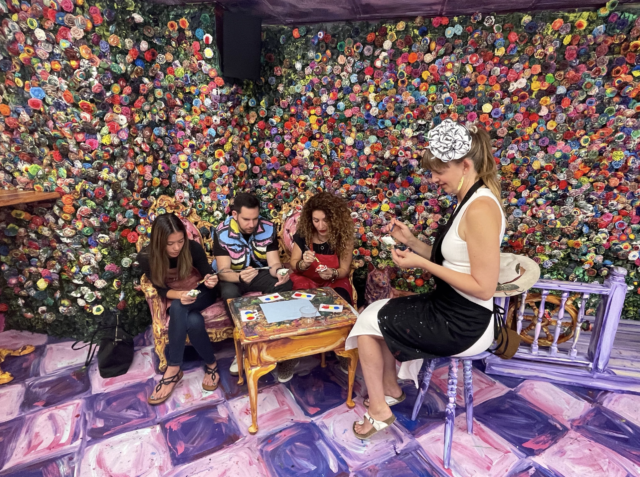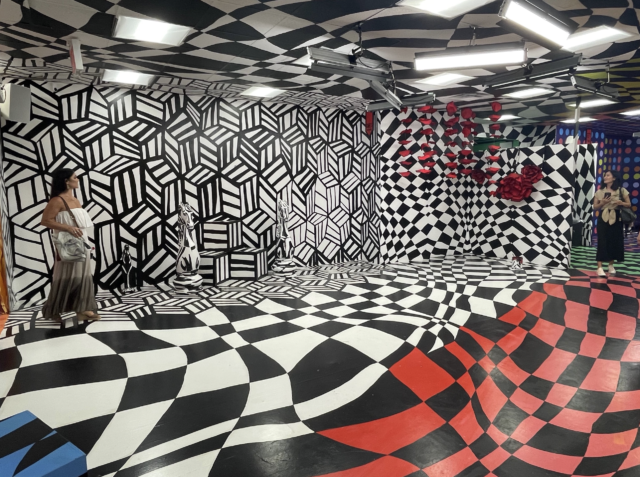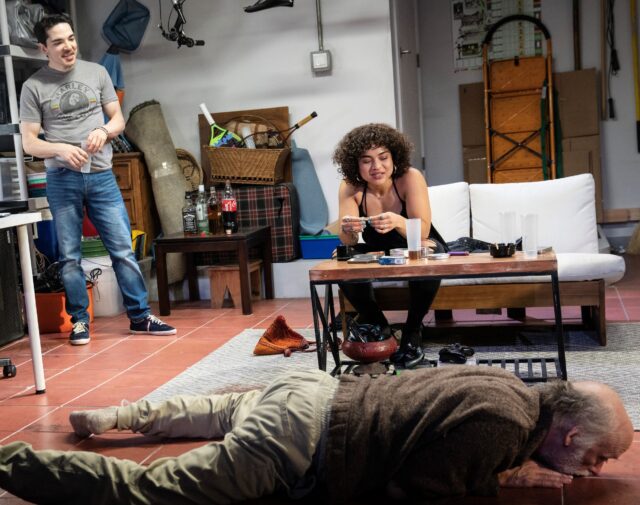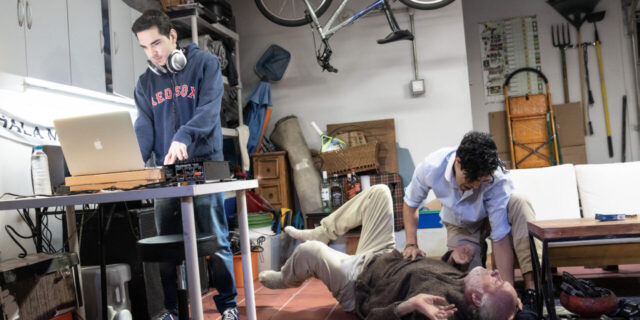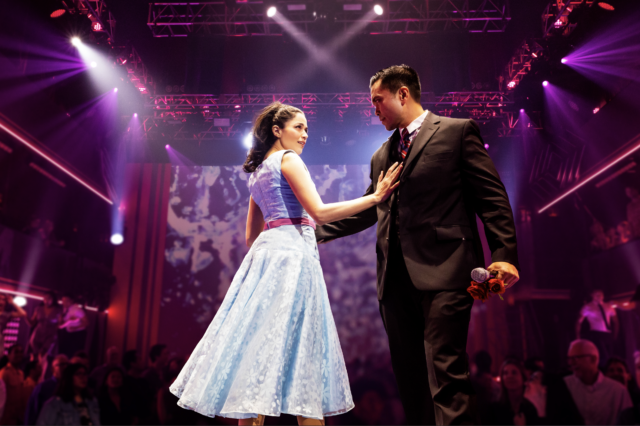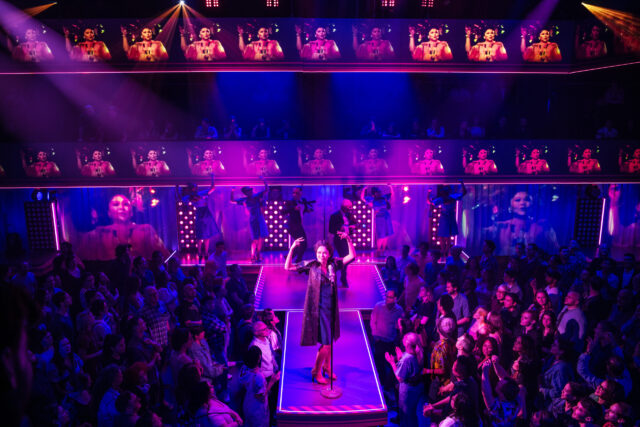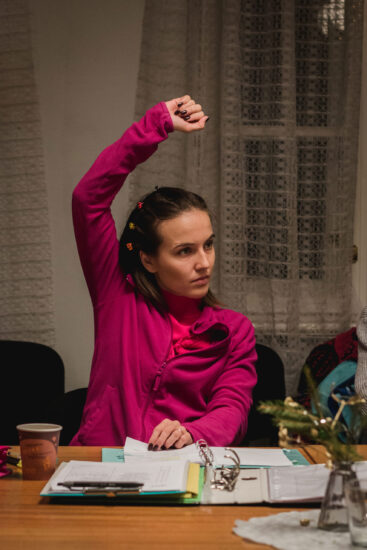
A co-op board meeting turns to the absurdly ridiculous in Jiří Havelka’s Owners
OWNERS (AKA THE OWNERS) (VLASTNÍCI) (Jiří Havelka, 2019)
Quad Cinema
34 West 13th St. between Fifth & Sixth Aves.
August 18-24
212-255-2243
quadcinema.com
Best. Co-op. Meeting. Ever.
If you’re considering joining your co-op board or just moving into a co-op, you need to first watch Jiří Havelka’s absurdist darker-than-dark comedy, Owners. Nearly the entire ninety-minute film, Havelka’s impressive debut, takes place in a community room in an apartment complex in Prague, where the board is meeting to discuss various important, and not-so-important, issues. The exacting proceedings turn into a kind of residential Twelve Angry Men, except in this case everybody is guilty of something.
Each of the characters sitting around the long, rectangular table come to the meeting with their own baggage, much of which gets unceremoniously unpacked. The chairperson is Mrs. Zahrádková (Tereza Ramba), who has three young children and has only the sincerest intentions to improve everyone’s living conditions by fixing the attic, installing an elevator, putting in safety bars, and making other necessary changes. She is accompanied by her husband, Mr. Zahrádka (Vojtech Kotek), who, after some debate — nearly everything, no matter how mundane, requires deliberation and a vote — is okayed to take the minutes.
Ms. Horváthová (Dagmar Havlová) has a lot to say about noise, water consumption, and pigeons. The virulently anti-elevator Mrs. Procházková (Pavla Tomicová) is subletting space to a group of handsome young African students and is joined by her “administrator,” Mr. Novák (Ondrej Malý), a mysterious jack of all trades who apparently has a company that can perform any task the co-op requires.
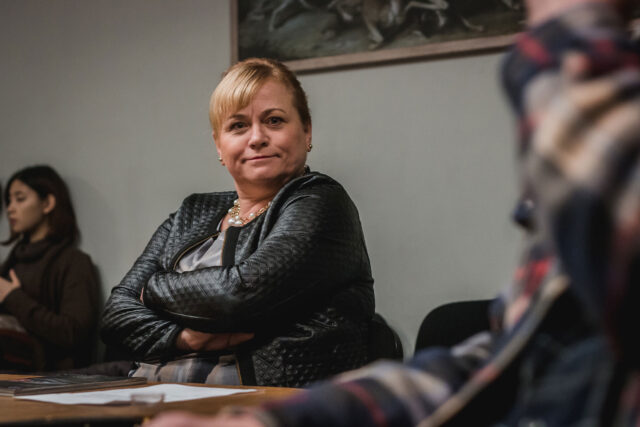
Mrs. Procházková (Pavla Tomicová) knows exactly what she wants, and doesn’t, in hilarious dark comedy
The stern Mrs. Roubícková (Klára Melísková) makes sure the HOA guidelines are strictly adhered to. The somewhat simple-minded Mr. Svec (David Novotný) is sitting in for his elderly mother, who is ill; he seems more concerned with the cake Mr. Zahrádka made and the bottle of Honey Jack than the numerous disputes. People can’t stop bringing up the sexual orientation of Mr. Nitranský (Andrej Polák), who threatens to sue.
At one end of the table are the well-dressed Cermák twins (Krystof Hádek and Stanislav Majer), attending their first meeting as they decide what to do with the their recently deceased father’s apartment and apparently have connections that can help the co-op with any legal or financial matters. At the other end of the table is the unkempt Mr. Kubát (Jirí Lábus), who refuses to approve any changes whatsoever, preferring the ways things were done under Socialism. In a far corner, one of Mr. Kubát’s tenants, Mr. Sokol (Ladislav Trojan), sits quietly, reading a book, saying nothing.
Near the door is a new couple, Mr. Bernásek (Jirí Cerný) and his pregnant wife, Mrs. Bernásková (Marie Sawa), who look on incredulously without commenting, wondering what the hell they have gotten themselves into. But nobody is allowed to leave; “You’re on the attendance sheet,” Mrs. Roubícková yells whenever anyone tries to exit the madness.
“Does the word solidarity mean anything to you?” Mr. Nitranský asks facetiously.
“Look, this is a ridiculous comedy,” Mr. Kubát says, just about the only statement no one argues with.
Written and directed by playwright, actor, presenter, and theater director Havelka based on his play The Society of Owners (Condominium), Owners is about much more than the power that comes with home ownership. It’s a brutally cynical parable of the political situation in the Czech Republic and the world, as liberals, conservatives, moderates, and extremists fight over the smallest details, resulting in little if anything getting accomplished and making no one happy but the anarchists. It’s like a divisive conversation on social media, with no hope of ever changing anyone’s mind.
“I want something to finally happen or the building will rot away before our eyes,” Mrs. Zahrádková declares, but no one is listening.
Havelka tackles sexuality, race, gender, age, health care, greed, ethics, and more in the film, which was shot in ten days with two cameras by cinematographer Martin Žiaran. Havelka and editor Otakar Šenovský occasionally insert blink-and-you’ll-miss-them snippets of apartment interiors and little problems that represent the crumbling infrastructure of democracy. Anežka Straková’s set design features a large print of Frans Snyders’s seventeenth-century Deer Hunt, a painting of dogs tearing apart a deer that adds a surprise touch of humor that made me bark out loud with laughter.
The film begins and ends in elegant splendor with, respectively, Jan Dismas Zelenka’s Baroque compositions De profundis and Sub olea pacis: Melodrama de Sancto Wenceslao, which translates to “Under the Olive Tree of Peace and the Palm Tree of Virtue the Crown of Bohemia Splendidly Shines Before the Whole World: Melodrama to Saint Wenceslaus.”
You won’t find any olive tree of peace or palm tree of virtue in this co-op, but you will find a hilarious cast of characters who, frighteningly, are often too close for comfort.
[Mark Rifkin is a Brooklyn-born, Manhattan-based writer and editor; you can follow him on Substack here.]
